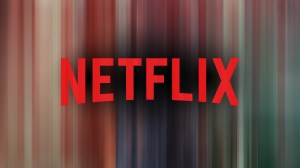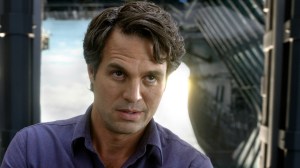For years, audiences have been slowly moving away from physical media, relying more and more on streaming video on demand to supply their entertainment. The most vocal hold-outs have been divided into two groups: older and/or rural consumers, who are resistant to, or less able to, change over fully; and cinemaphiles who enjoy the picture quality and bonus features available on disc, which are often not comparable for digital copies of the same films. But as we can see by the ever-dwindling number of brick-and-mortar video rental stores in the U.S., those groups are largely starting to come around.
Videos by ComicBook.com
Still, there are very good reasons not to throw away that DVD player just yet, and one of them has been thrown into sharp relief lately. Let’s break some of it down.
One key thing to look at is the still-existing VHS user base. As the dominant home video media for 20 years, videotapes (both VHS and Betamax) represented a seismic shift in how audiences consumed movies. There were some early attempts at disc-based home entertainment, such as DiscoVision and RCA’s Capacitance Electronic Disc (CED), but neither took off the way tapes did. For the first time, not only could people bring movies home with them, but with the advent of videocassettes, viewers could also record TV broadcasts, allowing them to time-shift their viewing for the first time.
The home video boom that followed not only brought just about every major studio film to VHS, but also created a healthy direct-to-video market, creating a niche for content that would not get made otherwise. As big-box video rental stores like Blockbuster and Hollywood Video popped up everywhere, there was an almost insatiable appetite for content to fill the shelves and keep customers coming back week after week.
It’s likely you know all or most of that, but something a lot of people don’t know is that there are hundreds (probably thousands, really) of pre-recorded titles that were available commercially on VHS, but never came to DVD, Blu-ray, or streaming. In some cases, the films are in the public domain, or have confusing rights issues, and so there is no incentive for anyone to spend the money to release them commercially. Even in some cases where the ownership of a film is clear, sometimes the studio doesn’t see a way forward to profitability. This is why there is still a fairly active VHS collecting and preservation community, as detailed in books like It Came From the Video Aisle and documentaries like Rewind This!.
That’s not an issue that’s exclusive to VHS. There were movies released on CED and Betamax that never made their way to VHS, too. And there are (as most people reading this probably know) movies on DVD that never came to Blu-ray or streaming. There are also movies and TV shows that never got a commercial release, and only exist on people’s home-made VHS recordings, and some that got very short-term releases through specialty imprints like Shout! Factory and now cost hundreds of dollars to acquire because they’re out of print.
That brings us to the next major issue, which has been helpfully illustrated for us in recent weeks by Warner Bros. Discovery.
The big headlines have been about Batgirl, Scoob!: Holiday Haunt, and the other projects that were simply cancelled and will be left on the shelf, but CEO David Zaslav’s dismantling of HBO Max has had a lot more impact on consumers than just that. A number of HBO Max Originals have been removed from the platform, with their “free” episodes also removed from YouTube.
In the case of Infinity Train, the show had already seen a physical release — and those discs, now out of print, are selling for huge amounts of money on eBay now.
And that’s the thing: this isn’t a moment to dunk on the fans of the show who didn’t think to buy a DVD copy. After all, for years now we have been conditioned to believe that streaming video on demand means an ever-growing catalog of content will be available forever at a reasonable price. The problem is, that just isn’t how companies work.
The same companies who decide not to officially release cult classics on DVD because they don’t know how to sell them, are now making the choice to remove “underperforming” titles rom their streaming platforms to save themselves a few pennies on server space, or just to avoid paying the talent their residuals. It’s a loss to the consumer, especially when — as Zaslav has promised in the case of HBO Max — it comes paired with a price hike, but if it makes an extra few pennies for the stockholders, that’s what really matters to a publicly-traded company at the end of the day.
This isn’t just about Warner Bros. Discovery’s cost-cutting spree. The idea is applicable more broadly to the streaming ecosphere. For years, it has been happening with Netflix where audiences were lulled into complacency by deals that made it seem like a show or movie would be available to them forever at the price of membership. Then, abruptly, Netflix’s contract with the distributor ends, and the programming is gone. Often it heads to another streaming platform, especially in the case of content that’s owned by WB, CBS, or NBC, who all have huge platforms of their own to populate. But sometimes, if there’s nobody bidding on it, the content just evaporates for a while.
And in a bit of symmetry, not everything available on streaming is backwards-compatible, so to speak. Only the most profitable streaming originals get a physical release from companies like Netflix and HBO Max, and in the cast of Disney+, it doesn’t seem like anything does. In those cases, audiences are more or less beholden to the whims of the companies that make the content. And that’s likely to get more prevalent as time goes on. For the time being, though, almost every major studio release and virtually all of the most popular streaming movies and shows will get some kind of disc release. We recommend that you pick it up, becuase really, owning something in a tangible, inviolable way is the only way to be truly confident it will work the next time you press “play.”








